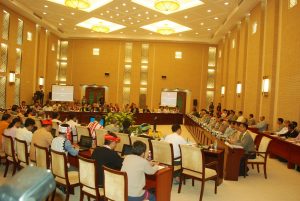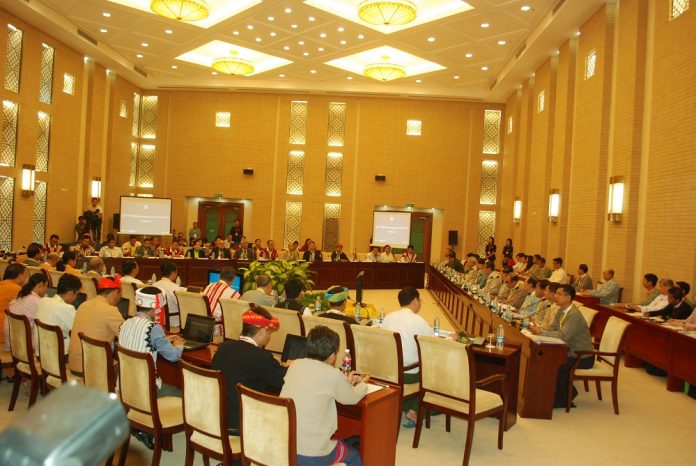Despite days of energetic negotiations, representatives at the 21st Century Panglong Peace Conference were unable to bridge the divide between the military and armed ethnic groups on the fundamental issues of secession, federalism and self-determination, and have decided to put them on hold. Speaking on what was supposed to be the last day of the conference, Union Peace Dialogue Joint Committee (UPDJC) Secretary U Zaw Htay said that the unresolved points would be shelved until the next, as-of-yet unscheduled round of talks.
“We have adopted the policy that one of the guiding principles should be non-secession, and that there can only be equality and self-determination if the armed ethnic groups agree to non-secession. I’m sorry to say that because we cannot reach an agreement, we will have to shelve these items for now,” he said.
There had been high hopes for the conference, but by May 28 prospects were looking bleak for any sort of breakthrough. Of 21 items that the political sector of the conference was to discuss, representatives only reached agreements on 12, U Zaw Htay said. He put blame at the feet of the armed ethnic groups, which he said were unwilling to compromise on the issue of non-secession.
Representatives of those armed groups and their often-allied ethnic political parties disagreed.
“Because the ethnic groups object to the phrase ‘Any unit of the Union must never secede from the Union’ the government is withholding its commitment to federalism and self-determination,” said Nai Layie Tamarh, general secretary of the Mon National Party.

“The ethnic groups object to the term “non-secession,” which they see as unnecessarily provocative.The government, on the other hand, is concerned that self-determination could lead to secession and the splintering of the country. That is why the word is so contentious,” said Daw Saw Mya Yar Zar Lin, a UPDJC member from the Arakan Liberation Party (ALP).
Representatives included members of the parliament (Hluttaw) and the cabinet, the military, armed ethnic groups and political parties. Although most attention at the conference has focused on the political sector, representatives were also debating economics, society, land and resources, and security. The conference was originally scheduled to end on May 28, but the UPDJC decided to extend it an extra day in an attempt to break the stalemate.

